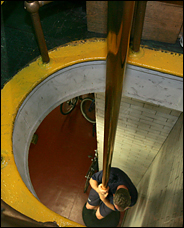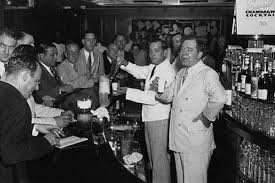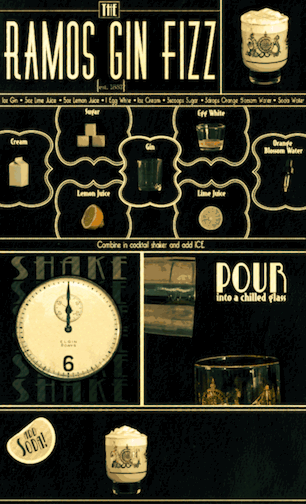LETTERS FROM THE GLOBAL PROVINCE
Gin and Joy, Global Province Letter, 10 July 2017
During the plague years, doctors wore masks filled with juniper berries as they thought the plague was spread by bad odours. People began eating juniper, drinking wine infused with juniper, bathing in juniper and covering themselves with juniper oil. This is considered superstition by modern historians, but juniper oil is an effective natural flea repellent—50 Surprising & Delightful Gin Facts
Celebrating Together. There's plenty to celebrate right now. Canada just had its 150th birthday, rather quietly, in tune with its understated populace. The Fourth of July cruised over these United States, though the irreverent, mindless broadcasters at the networks ignored the Boston Pops and its spectacular 1812 cannon. These ennobling celebrations still remind us that our peoples stand taller and straighter and brighter than the ghastly times in which we live.
Trouble is, lots of things are in short supply. We are losing the habit of neighborly back and forth, find ourselves without the little things that make for merriment, feel the downcast eyes around us. We're amissing, not flags or fireworks, but the ordinary staples of the good life. Spreadsheet buyers at Macy's and at the big mall out near the state highway are under strict orders to keep inventories paper thin and eliminate the minor league, fun brands like Good and Plenty, especially if they compete with the generic items big box stores love to peddle. Retailing, in other words, is suffering from anorexia.
We had been looking forward to Red Parker's corn. But the tropical rains that have blown in over the last couple of months made mud of his first planting, and he had to plow it under. It is the worst rain for growers in 60 years, according to Red. Happily, he's got another batch in the ground, and he avows that good things are coming. Corn, and watermelons, and peas, and squash, and beans, and who knows what else. "Call me in a couple of weeks," says old Red. Fortunately he has never let us down, and he is still a spring chicken, not a year over 90, so he will harvest a heap. And we will yet do a lot of chewing on ears of sweet corn slathered in butter.
Last Resorts. When skies are cloudy and the shelves are bare, we have to make the best of it. It's time to take to drink. We are recommending gin, spirits that are full of affability. Gin is the father of more good stories than any other alcoholic concoction that mankind has contrived. Gin consumption, which had fallen with the advent of Prohibition, staged a comeback in the 80s. Since then, overall, sales in the developed countries have slowed: the world's big gin country is the Philippines. Surprise. And, no surprise then, world's biggest drinkers come from another underdeveloped country—Russia.
We think gin is the right elixir for your summer holidays because its cocktails date from a time when we got along with each other. Gin has affability written all over it. Gin tales all ring of good fellowship. For instance, in late April and early May of 1975, the Harvard Club of New York sliced its martini in half, to the distress of any member worth his salt. This all happened back in the days when the New York Times had just two meaty sections, not full of the fluff that afflicts the paper today. During the vanishing drink crisis, the "all the news that's fit to print" newspaper ran a long story above the fold on the front page of the second section. The miserly ways of the Harvard Club (learned we are sure at the somewhat senile University) only endured for 4 days. What happened is that friendly drinkers at the Harvard Club called their Yale buddies and went over to 50 Vanderbilt to drink the resolute doubles served by Eli. Harvard had to back down. We must add, however, that both clubs, which used to be great, have turned into average hotels: neither they, nor any place else, still serve a drink worth a damn. But back then ginophiles united as one to defend the sacred liquid that was the lifeblood of any half decent congregation of goodfellas.

Newspapermen and advertising stalwarts used to be great and amusing martini drinkers. Back in the ancient times of the 20th century when people still had 2 hour lunches, the chairman of New York's best advertising firm came down to our office which was wonderfully housed in a one-time firehouse in the East 20's. At length he stared at the durable shiny pole that stretched up into our office: we considered it an emergency escape route in case an angry client showed up on the scene. It urged us to hurry off to a long lunch where we might talk about fire fighters, big men full of heart and vinegar, Roebling's Brooklyn Bridge, and the immense virtues of our wives.
After the viewing, we repaired to a nearby Japanese restaurant. It was very good, but as best we can remember, we were the only customers that day. Soon enough we had martinis (and we had them at every lunch together for 20 years thereafter), which inspired him to get up and give the only Japanese speech he had ever given. It was an encore of the brief talk he had voiced to the staff in his Tokyo office a year or so previous. A strapping fellow, he spit out the words to us and then was quickly seated, proud to have provided the opener for our Japanese lunch. It was a good time, and we're afraid he did not make it back to his Madison Avenue digs till sometime after 3:30PM. This is all to say that martini swizzling back then provided a wonderfully civilized, comical way of being slightly raucous.
What to Drink. It will not startle you to learn that drinkers of interest today do not favor the blockbuster gins that dominate the gin market such as Seagram's, Gordon's, Beefeater, Tanqueray, etc. They are old hat and tired. They are a little like the high volume global beers, most of which largely taste like water. Much the same can be said for the common vermouths once favored by martini drinkers, such as Cinzano or Martini and Rossi. As with many products the world over, big brands have been cheapened as sales have flattened and the makers try to squeeze extra pennies out of their declining sales. Once upon a time, Plymouth was the standby of serious drinkers, but now it is just the stuff older imbibers swear by.
Gin detectives all, we look for little boutique varietals that appeal to small niches of the gin universe. George, a legislator who hangs out at Duke's and who works on trade matters, but is more renowned in Congress for his drinks knowledge, is often in London: he has just discovered there Nolets Gin, a Dutch creation. When she's in the Yucatan, a lithesome lady yoga instructor finds herself drinking London No. 1, claiming it has well balanced botanicals that take the creases out of old bodies. The Brits, who some claim to be inventors of gin in the first place while others points to the Dutch and even to the Middle East as its true parents, keep bubbling up with new juniper gins, such as Fifty Pounds. The UK comes up with more eccentric gins that you can imagine, but the real drinkers are in the U.S. and now, increasingly, Asia. Out in the recesses of Silicon Valley, Phil, a serial CEO, takes to Hendricks, which he swears can cover up a bad meal. A journalist and strategist wants to remind us not to neglect Navy strength gins, which must be 57 percent alcohol, or 114 proof, the same requirement that the Royal British Navy had for gins beginning in the early 1800s." There are a few available, including one from Leopold's, which is a gin recommended for a drink called the Bee's Knees.
We ourselves will have none of it. Suckers for the bottle and the taste, we drink Citadelle, a French gin much liked by the Spanish, made by Maison Ferrand in Cognac, France from 19 botanicals. Its bottle and its website are so pretty that it is irresistible to anybody with eyes. We have also enjoyed Botanist Islay Gin from Scotland, a favorite at one of our most esteemed sushi bars.
Recipes. We have long told you too much about martinis on the Global Province, and will spare you our martini wisdom, except to say that when you are drinking near the ocean on the Pacific Coast, perched comfortably on sofa chairs next to a setting sun, with fog rolling in from the sea, laughing with a brother, your martini should be 99% gin, with only a half capful of vermouth allowed in the glass. With that mix, the world will take on a golden glow. (Churchill more or less liked to skip the vermouth).

More importantly, you should learn now how to make a Ramos Gin Fizz, the drink so loved by Huey Long that he took a barkeep up to Manhattan, so as teach the staff at the New Yorker Hotel how to replicate this famous drink of New Orleans. But, now in 2017, let the truth come out. Bartenders in and out of New Orleans know how to make a gin fizz, not a Ramos, so they put far too much citrus in their flawed renditions of this companionable, easy tasting cocktail. "Easy," in fact, is the word for this summer since too many people are at each other's throats. A Ramos should make you purr, forget that you have any aggressive bones in your body, and move you to welcome any good-natured man or woman into your tent. If a fizz bites you, it is not a Ramos. Here is the Ramos right:

1. Put a cupful of cracked ice into a big cocktail shaker (ours has a Rooster head on top)
2. Put in the following ingredients:
a. An egg white b. A teaspoon of vanilla c. A few dashes of freshly squeezed lime juice d. A few dashes of freshly squeezed lemon juice e. A very few dashes of good orange flower water (be careful, many are crummy) f. Two ounces of heavy cream (not supermarket cream which is low on butterfat) g. 1 to 2 teaspoons of powdered sugar
3. Throw in some more cracked ice.
4. Close the shaker and then shake vigorously. Mr. Ramos was known to have a line of at least 10 bar helpers. The shaker was passed down the line and back; each in turn gave it a vigorous tossing. No Ramos Fizz was of any worth til it had made it up and down the line.
5. Pour out the drink. We favor nicely colored Italian glassware
6. Top off the drink with a slight bit of charge water. Perhaps Pellegrino, if nothing else is at hand.
7. We would finish the drink with a sprig of fresh mint on top, though the bar types would suggest a slice of lemon hooked over the edge.
P.S. For a friendly look at the gin world, read "Five Books Interview: The Best Books on Gin". Oliver Ward, editor of a gin website, reviews five of the better current books which among others give you an understanding of the gin market. Monopoly brands still dominate the marketplace, but all the interest is in craft brands. In our own eyes, one is looking for offbeat brands in offbeat countries such as France, and Holland, and Scotland; the other countries turn out the huge volumes necessary to sate the masses. Our favorite single malt comes from Burgundy. Our everyday best beers come from Vietnam and Laos.
P.P.S. Janis Joplin's first recorded song memorialized her drinking and her gin. We suspect you will feel better just listening to Merle Haggard mixing Misery and Gin.
P.P.P.S. As we suggested at top of this letter, gin may be good for your fleas. Hasten to say, we have not tried out gin on our dog. We are not certain as to its other health benefits. Of course, there are not any good clinical studies about the benefits of good chums, good cheer, and good celebrations.
P.P.P.P.S. Bill G., one of Lyndon's White House fellows, was good for a round of martinis every time we visited him in Georgetown. He offered none of the slosh put out by DC bars, but conjured them up in the living room that looked out on his lily-filled garden. He's gone south now, to Wilmington, North Carolina, and we are uncertain what he drinks now.
P.P.P.P.P.S. Duck Soup. We have not had much talk of martinis in Steve King's Today in Literature, but we are hoping he will remedy the error. His is the best letter around with background on the people who cook up literature. We think we learned from him of the dinner between Groucho Marx and T.S. Eliot where each gave as good as he got.
P.P.P.P.P.P.S.
To remember a world where a martini was still a martini, one might pick up a copy of Cleveland Amory's The Last Resorts. This good fellow memorialized High Society, both poking fun at it and enshrining it. After all, he was a child of privilege. We never knew he knew Bill Zinsser, who is the only chap who ever wrote a usable book about how to write.
P.P.P.P.P.P.P.S. Our grocer favors French vermouths, especially Dolin from Chambery. He used to like Boissiere, but won't have it in the store since it migrated to Italy.
Home - About This Site - Contact Us
Copyright 2017 GlobalProvince.com